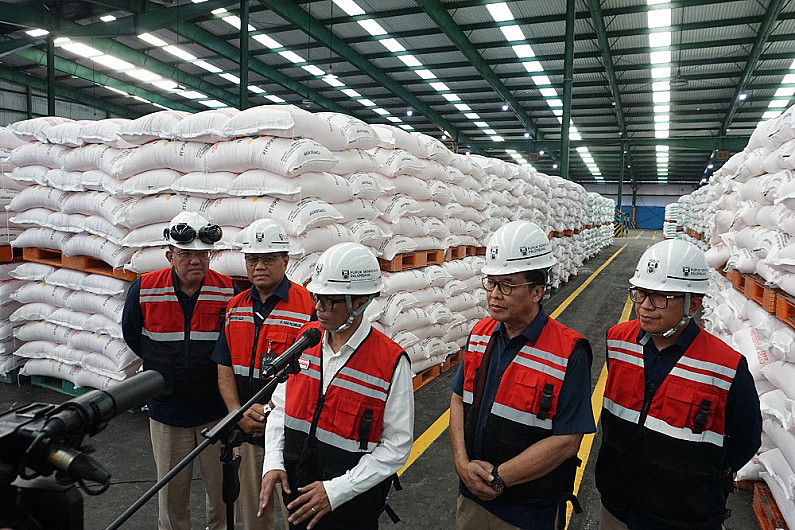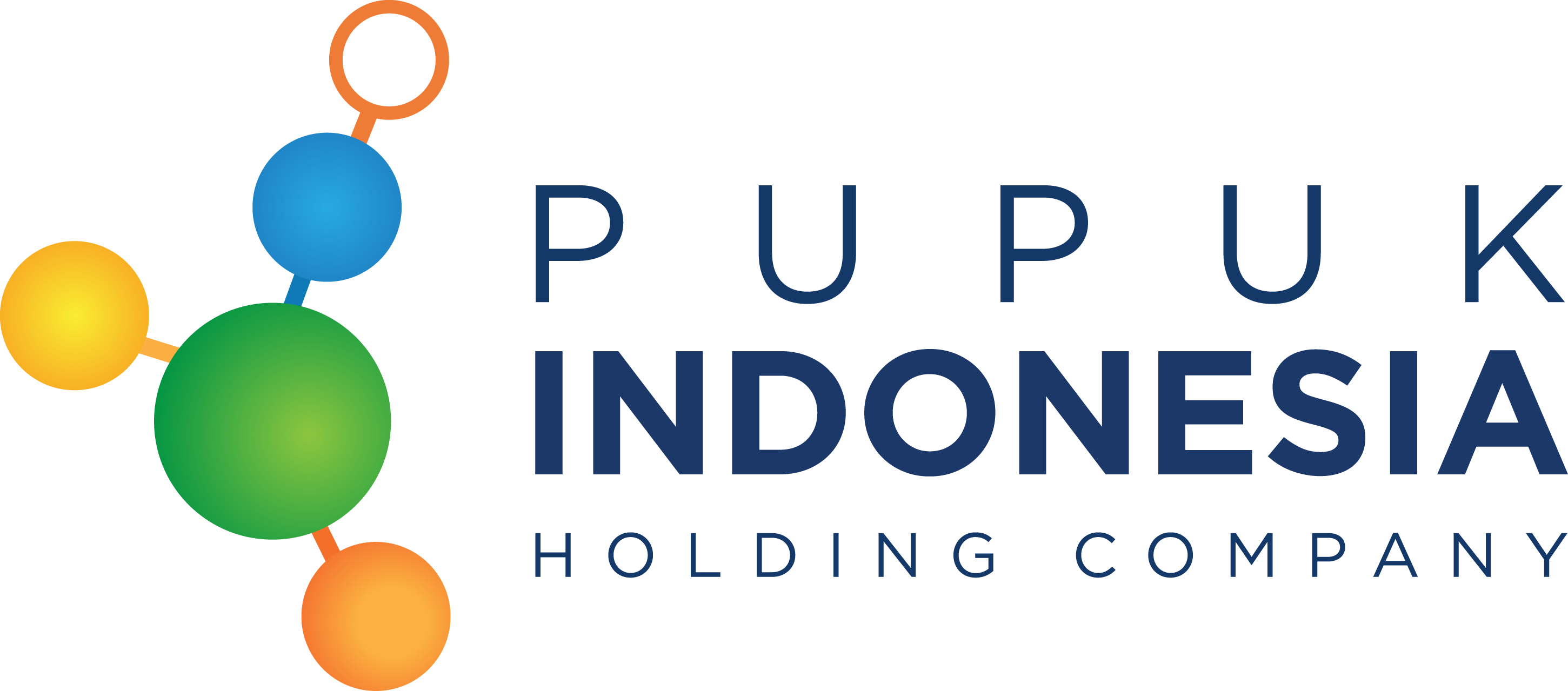Berkunjung Ke Gudang Pusri, Wakil Menteri I BUMN Memastikan Pupuk Tersedia Untuk Masyarakat

BERKUNJUNG KE GUDANG PUSRI, WAMEN PAHALA : KITA MEMASTIKAN PUPUK TERSEDIA UNTUK MASYARAKAT
PALEMBANG – Wakil Menteri BUMN I Pahala Nugraha Mansury memastikan bahwa pupuk subsidi dan non subsidi tersedia untuk memenuhi kebutuhan masyarakat. Hal ini disampaikan usai dirinya berkunjung ke PT Pupuk Sriwidjaja (Pusri) Palembang pada Senin, (17/4/2023).
Dalam kunjungan kerja ke Palembang, Sumatera Selatan, Pahala menyempatkan untuk meninjau langsung Gudang Lini I yang berada di area pabrik anak Perusahaan Pupuk Indonesia. “Kami dari Kementerian BUMN bersama Pupuk Indonesia datang ke Pusri untuk bisa pertama-tama lihat kesiapan dan ketersediaan pupuk yang ada di Pusri sesuai dengan dari bapak Presiden dan Menteri BUMN Bapak Erick Thohir bahwa kita harus memastikan pupuk baik subsidi dan nonsubsidi itu harus betul-betul disiapkan,” demikian ungkap Pahala.
Dilaporkan bahwa Gudang Lini I di area pabrik Pusri Palembang tersedia urea bag sekitar 4.000 ton, lalu terdapat pula Urea curah sekitar 32.000 ton, dan NPK bag sekitar 2.500 ton.” Kita lihat ini upaya kita memastikan bahwa pupuk subsidi dan non subsidi tersedia untuk masyarakat,” tambahnya.
Selain menjamin ketersediaan pupuk subsidi dan non subsidi, Pahala mengungkapkan bahwa Pupuk Indonesia Grup juga telah mengimplementasikan sistem digital pada proses penebusan, salah satunya menggunakan aplikasi REKAN yang telah diimplementasikan. Aplikasi ini, dikatakan Pahala memberikan kemudahan dan memperbaiki tata kelola pupuk bersubsidi yang selama ini menjadi perhatian Pemerintah.
Guna mendukung ketersediaan pupuk dalam negeri, Pahala mengatakan bahwa Pupuk Indonesia juga memiliki beberapa rencana pengembangan pabrik dalam rangka menambah kapasitas produksi urea dan NPK. Untuk pabrik urea direncanakan akan dibangun di Papua. Sementara NPK rencananya akan mengkonversi SP-26 menjadi pabrik NPK dengan kapasitas sekitar 600.000 ton yang direncanakan beroperasi pada tahun 2024. Serta pembangunan pabrik NPK di Pupuk Kujang Cikampek dan Pupuk Kaltim dengan kapasitas masing-masing sekitar 100.000 ton.
Belum lama ini juga Pupuk Indonesia menambah kapasitas NPK dengan mengoperasikan pabrik NPK Pupuk Iskandar Muda (PIM) yang berkapasitas 500.000 ton. Selain itu, PIM juga mengoperasikan kembali pabrik PIM 1 dengan kapasitas 570 ribu ton urea, sekaligus melengkapi pabrik PIM-2 yang juga berkapasitas 570 ribu ton urea.
Menurut dia, ketersediaan pupuk urea saat ini sudah mampu memenuhi kebutuhan nasional, sedangkan NPK masih perlu ditingkatkan lagi meskipun kapasitas produksi Pupuk Indonesia Grup telah memenuhi kebutuhan NPK subsidi.
Pupuk Indonesia memiliki kapasitas produksi pupuk mencapai 13,9 juta ton, dengan rincian produksi urea sebesar 8,8 juta ton, NPK sebesar 3,8 juta ton, dan lainnya sekitar 1,3 juta ton. Kapasitas produksi ini telah mendukung ketersediaan pupuk subsidi dalam negeri. Alokasi pupuk bersubsidi ditetapkan sebesar 7,8 juta ton di tahun 2023. Dengan rincian pupuk jenis urea sebesar 4,6 juta ton dan NPK sebesar 3,2 juta ton.
Berdasarkan Peraturan Menteri Pertanian (Permentan) Nomor 10 Tahun 2022, Pemerintah memfokuskan subsidi pupuk kepada dua jenis yaitu Urea dan NPK. Dalam beleid ini pun petani yang berhak mendapatkan alokasi subsidi ditetapkan kriterianya, yaitu wajib tergabung dalam kelompok tani, terdaftar dalam SIMLUHTAN (Sistem Informasi Manajemen Penyuluh Pertanian), menggarap lahan maksimal dua hektar. Selain itu, pupuk bersubsidi saat ini difokuskan pada 9 jenis komoditas strategis, yaitu padi, jagung, kedelai, cabai, bawang merah, bawang putih, kopi, tebu, dan kakao, dari yang sebelumnya ditujukan untuk sekitar 72 komoditas. Dengan begitu, petani yang tidak sesuai kriteria maka tidak berhak mendapatkan alokasi subsidi pupuk.
Pupuk Indonesia juga memiliki layanan pelanggan yang bisa diakses oleh seluruh petani dengan kontak bebas pulsa di nomor 0800 100 8001 atau WA 0811 9918 001. Melalui layanan pelanggan, Pupuk Indonesia akan menampung keluhan terkait pupuk bersubsidi baik dari ketersediaan, harga, maupun kualitas.







.png)